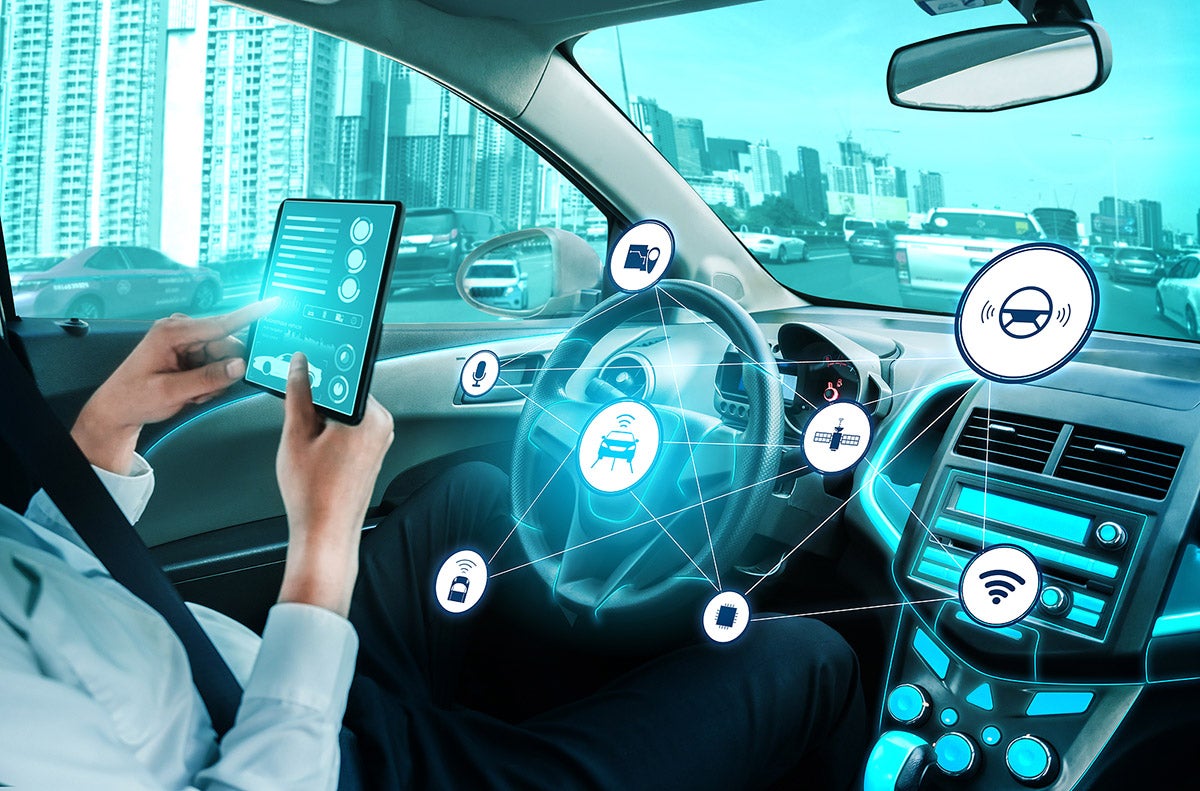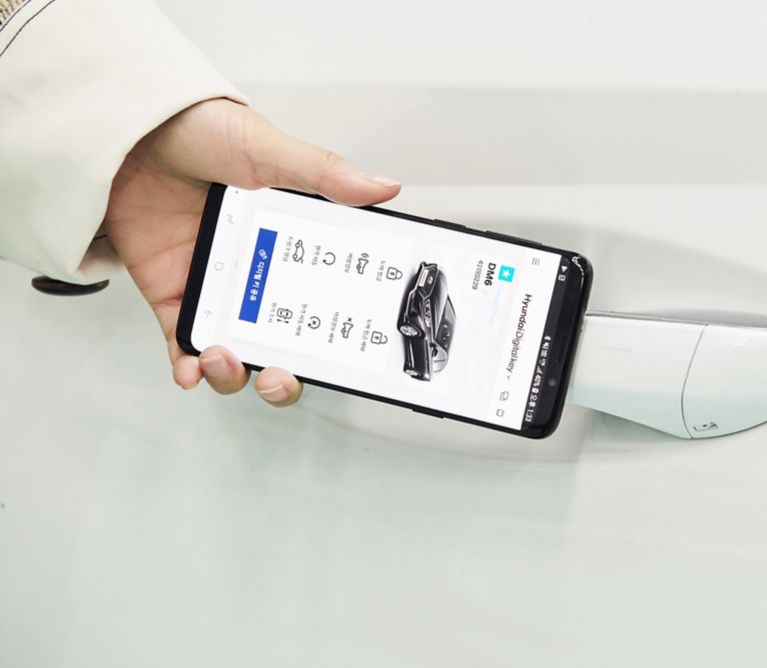Unlock Your Car The Digital Key Revolution
The Rise of Digital Car Keys: A Farewell to Fobs?
For decades, the car key has been a ubiquitous metal object, a small but essential link between driver and vehicle. But the automotive landscape is rapidly changing, and the traditional key fob is slowly becoming a relic of the past. Digital car keys, utilizing smartphones, smartwatches, and even key cards, are revolutionizing how we interact with our vehicles, offering convenience and security improvements that were previously unimaginable.
Smartphone Integration: Your Phone, Your Key
The most prevalent form of digital car key is the smartphone-based system. Many modern vehicles allow you to unlock, lock, start, and even share access to your car directly through a dedicated app. This eliminates the need to fumble for keys in your bag or pocket, particularly handy in inclement weather or when your hands are full. Furthermore, these apps often offer extra features like remote vehicle location, pre-conditioning of the cabin temperature, and even the ability to remotely check fuel levels.
Beyond the Phone: Smartwatches and Other Devices
While smartphones remain the dominant player in the digital key arena, the technology is expanding. Smartwatches are increasingly being integrated, offering a similarly convenient, hands-free experience. Imagine unlocking your car as you approach, simply by having your smartwatch nearby. Some manufacturers are even exploring other wearable technology and even key cards as options, providing flexibility and backup solutions in case your primary device is unavailable or malfunctions.
Enhanced Security: A New Era of Protection
Traditional car keys, while functional, are susceptible to theft and cloning. Digital keys, however, utilize advanced encryption and security protocols to drastically reduce this risk. The reliance on Bluetooth Low Energy (BLE) or Near Field Communication (NFC) technologies means that unauthorized access is extremely difficult. Many systems also integrate with cloud-based services, allowing for remote locking and tracking in case of theft, providing peace of mind for car owners.
Sharing Access: Simplified Key Management
One of the most compelling advantages of digital car keys is the ability to easily share access with others. Need to let a friend borrow your car? Simply send them a digital key through the app, granting temporary or permanent access as needed. This eliminates the hassle of physically handing over keys and allows for precise control over who has access and for how long. This is especially beneficial for families or car-sharing services.
The Future of Digital Keys: Expanding Capabilities
The evolution of digital car keys is far from over. Future developments will likely involve even more seamless integration with our daily lives. Imagine unlocking your car automatically as you approach, even without your phone in your hand, leveraging advanced biometric authentication technologies. The potential for integration with smart home systems and other connected devices is also vast, creating a truly holistic and convenient driving experience. Expect to see more sophisticated features like personalized driver profiles and advanced diagnostics relayed directly through the digital key interface.
Addressing Concerns: Battery Life and Reliability
While digital car keys offer many advantages, some concerns remain. Battery life on smartphones and smartwatches is a crucial factor. However, most systems are designed to provide ample warning before the digital key becomes unusable, giving users sufficient time to address the situation. Furthermore, manufacturers are constantly improving the reliability and resilience of their systems to ensure a smooth and uninterrupted driving experience. Most cars still have a backup physical key for emergencies.
The Transition: Gradual Adoption and Coexistence
The shift to digital car keys isn’t happening overnight. Traditional keys will likely coexist alongside digital alternatives for many years to come. However, the trend is clear: digital keys are becoming increasingly prevalent, offering a compelling blend of convenience, security, and flexibility that is reshaping the driving experience for millions of people globally. The convenience and additional features are making the digital key an increasingly desirable option for new car buyers. Click here for information about digital keys for connected cars.
Connected Cars Privacy Concerns & Solutions
The Constant Data Stream: What Your Connected Car Knows
Modern vehicles are increasingly sophisticated, boasting features like GPS navigation, in-car Wi-Fi, and over-the-air software updates. These advancements are fueled by a constant stream of data collected by the car’s various sensors and systems. This data includes your location, driving habits (speed, acceleration, braking), destination history, even the music you listen to. This constant data collection is the foundation of many convenient features, but it also raises significant privacy concerns.
Data Breaches: A Vulnerable Target
Connected cars, like any internet-connected device, are vulnerable to cyberattacks. A successful breach could expose your personal information – not just your driving habits, but potentially your home address, financial details linked to your account, or even access to remotely controlling your vehicle. The sheer amount of data collected and the potential for widespread impact make connected car security a critical issue.

Third-Party Data Sharing: Who’s Watching?
Many car manufacturers share data collected from your vehicle with third-party companies, often without explicit consent or clear explanation. This data might be used for targeted advertising, market research, or even sold to data brokers. Understanding which companies have access to your data and how they use it is crucial, yet this information is often buried deep within complex terms and conditions.
Location Tracking: Always On, Always Knowing
The GPS functionality in your connected car constantly tracks your location. While useful for navigation, this constant tracking raises privacy concerns, particularly if the data isn’t securely protected or is shared with unauthorized parties. This can lead to concerns about stalking, targeted advertising based on your movements, or even insurance companies using location data to unfairly increase premiums.
Data Retention Policies: How Long is Too Long?
Car manufacturers often have data retention policies that dictate how long they keep your vehicle’s data. These policies can vary significantly, with some companies retaining data indefinitely. Understanding the length of time your data is stored and the measures taken to secure it during this period is vital for maintaining privacy.
Data Minimization and Purpose Limitation: A Privacy-Focused Approach
One effective solution is to focus on data minimization and purpose limitation. This means only collecting data that is strictly necessary for the functionality of the car’s features and using it only for its intended purpose. For instance, if GPS data is only needed for navigation, it shouldn’t be used for advertising or other unrelated purposes. Manufacturers should be transparent about what data is collected and why.
Stronger Security Measures: Encryption and Access Control
Implementing robust security measures is paramount. This includes encrypting data both in transit and at rest, using strong passwords and authentication methods, and implementing rigorous access control protocols to limit who can access your vehicle’s data. Regularly updating the car’s software is also crucial for patching security vulnerabilities.
User Control and Transparency: Informed Consent
Drivers should have greater control over their data. This includes the ability to easily access, delete, or limit the sharing of their data. Manufacturers need to provide clear, understandable privacy policies that detail what data is collected, how it’s used, and with whom it’s shared. This transparency allows users to make informed decisions about their privacy.
Independent Audits and Regulations: Enhancing Accountability
Independent audits of connected car systems can help ensure compliance with privacy standards and identify potential vulnerabilities. Furthermore, robust regulations are needed to hold manufacturers accountable for protecting user data and to establish clear guidelines for data collection, use, and sharing practices. Governments should actively develop and enforce these regulations.
Consumer Education and Awareness: Taking Control of Your Privacy
Finally, educating consumers about the privacy implications of connected cars is crucial. People need to understand what data is being collected, how it’s being used, and what steps they can take to protect their privacy. This includes understanding the terms and conditions associated with their vehicle and exercising their rights to control their data. Please click here to learn about privacy in connected cars.


